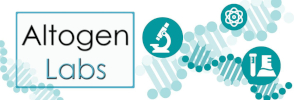Publication [Download PDF]: KRAS mutant allele-specific expression
knockdown in pancreatic cancer model with systemically delivered bi-shRNA KRAS lipoplex by Donald D. Rao et al. PLOS ONE https://doi.org/10.1371/journal.pone.0193644
Pancreatic cancer is notorious for its poor prognosis caused by early metastasis potential. While cancer biology has obtained a deeper understanding of biochemical, micro-environmental, genetic and epigenetic occurrences in this disease, there has been little progress in the way of practical or applicable therapeutics. The progression of cancer into the malignant phenotype is associated with the proto-oncogene KRAS along with tumor suppressors CDKN2A, TP53 and SMAD 4. Most pancreatic ductal adenocarcinomas (PDAC) (over 90%) have activating KRAS mutations that affect MEK, ERK, mTOR, PI3K, AKT, and RAF pathways; several clinical trials targeting these pathways have been initiated. Unfortunately, high cytotoxicity and developed resistance are substantial obstacles in drug targeting, and lack of binding sites, specificity and RNAi delivery have prevented the targeting of the KRAS mutation (KRASmut). In their 2018 PLoS ONE study, Rao et al. demonstrates the use of a fusogenic liposome to systemically delivery a plasmid encoding bi-functional shRNA (bi-shRNA) designed to silence KRASmut. The shRNA was validated with in vitro and in vivo studies. The plasmid is designed to load mature shRNA onto RISC complexes, effectively causing mRNA cleavage and degradation, translation inhibition, and p-body sequestration. PANC1 xenograft murine models demonstrated inhibition of tumor growth without cytotoxicity upon systemic intratumoral plasmid delivery of bi-shRNAKRAS and KRASG12mut knockdown.
Methods used in this study include a dual luciferase reporter assay, a restriction fragment length polymorphism assay (RFLP), viability assays, qPCR for plasmid detection, and xenograft studies. While in this instance only the xenograft studies were performed by Altogen Labs, we are capable of performing any of the abovementioned assays. Altogen Labs is a contract research organization in Austin, TX offering a variety of pre-clinical biology services like those mentioned here. Cancer studies are particularly popular; Altogen Labs has the capabilities for a wide range of in vitro and in vivo assays with over 100 tumorigenic cell line models to choose from.
Altogen Labs is able to perform various toxicity studies, IC50/LD50 evaluations, gene silencing and overexpression analysis, compound evaluations, proliferation, apoptosis, invasion, and growth assays among others. Altogen Labs is dedicated to providing clients with efficient and quality research, which is why our team of experienced scientists are available during every step of the research process from experiment design to results analysis.
